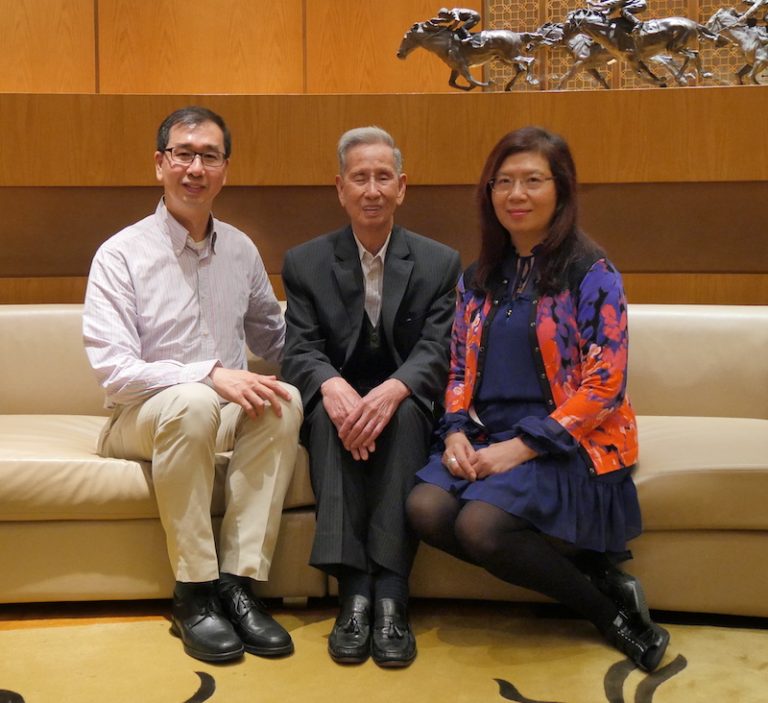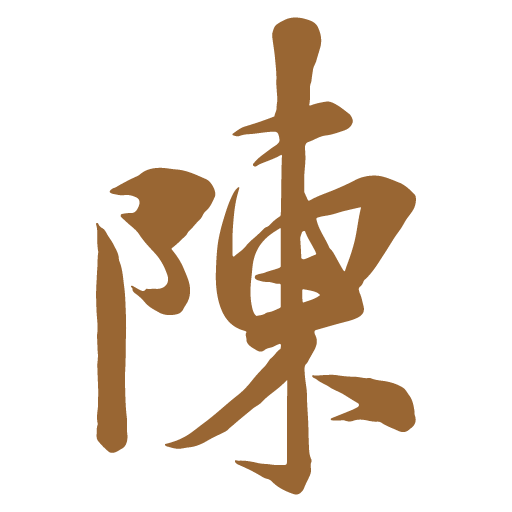回顧作為潮州媳婦的日子 A Chiu Chow Daughter-In-Law's Diary

我是一個不諳潮州話的潮州媳婦。潮州老爺跟我談話,一定要講廣東話。
主日崇拜後,老爺會和家中各人,去九龍城吃潮州菜午餐。許多年前,有一間叫「韓江」的潮州菜館。在此,我勾起和老爺奶奶吃午飯前的一絲回憶。
我對「韓江菜館」的名稱甚為好奇。我問老爺:在潮州是否有韓江?
老爺聽後也感到奇怪。老爺回答說,在潮州沒有此名稱的潮州菜館。老爺就順勢介紹一下潮州的地理。至於江河,就有韓江。那是一條主要河流,由北向南;途經過潮州市和汕頭市,流入南海。時至今日,互聯網普及,在網絡上知曉韓江入選 2017 年度十條「最美家鄉河」。
每週日的潮州菜午餐,是給我一個認識潮州飲食文化的好機會。潮州人愛吃茶,品茗十分有研究。老爺的家中,有林林總總的上等茶葉。
我十分嚮往潮州的風土人情,終於在 1990 代某年的暑假,央求老爺奶奶同行去潮州。我們還帶了女兒詩敏和兒子思朗一起。
潮州之行,老爺安排了司機,帶我們週圍去遊覧當地的風景,包括老爺的家鄉潮州市潮陽區,和潮安楓溪鎮。 在楓溪鎮,有很多潮州陶瓷工藝品店。我買了潮州茶具和有藝術雕花的工藝品。老爺還示範如何沖泡一壺好茶。
有一次,老爺和我們在九龍城「品潮軒」吃午飯。品著清香的茶,我問關於老爺的家鄉往事。
老爺回憶往日的潮州家鄉,是在潮州市的潮陽區棉城鎮。棉城鎮的街道,兩旁種有美麗的棉花樹。他是和叔伯、祖父同住在一起。家宅出入口的門檻上掛著「潁川世家」的牌匾。隔離鄰舍,戶戶人家都是一樣。但是,老爺不知道「潁川世家」是代表甚麽。
老爺以歡容待活潑可愛的孫兒。 平日,老爺都是板著面的。當他有興致說往事,反而侃侃而談,繪聲繪形。
老爺息了世上的勞苦,辭世返天家。在天家跟奶奶重聚。天使迎門歡唱。
愛銘
I was a daughter-in-law that could not speak the Chiu Chow hometown language of my father-in-law. Whenever my father-in-law had a conversation with me, he had to speak Cantonese.
After Sunday Worship service at Kowloon City, my father-in-law would meet with us to have lunch. Many years ago, there was a restaurant that served Chiu Chow Cusine in Kowloon City. The restaurant’s name: “Han River”. I recalled a conversation between myself and my father-in-law in that restaurant.
I was curious about the name of the restaurant. I asked my father-in-law whether there was a restaurant in Chiu Chow that got the same name. My father-in-law was astonished at my question. He said that there was no such of a restaurant in the same name in Chiu Chow.
Taking the opportunity, my father-in-law told me that there was a river, Han River, which run from the north to the south crossing his hometown to reach the South China Sea. Internet became popular in recent days. I searched Han River again. In 2017, the Han River was chosen as one of the ten most beautiful hometown rivers in China.
The Chiu Chow lunch on every Sunday, gave me an insight into the Chiu Chow Cuisine and Culture. Preparing and drinking tea is an art. There were many kinds of tea leaves at the home of my father-in-law.
I longed for visiting Chiu Chow to know more about the hometown of my father-in-law. During one of the summer school holidays in 1990’s, I asked my parents-in-law to visit Chiu Chow with my family. We brought along our children, Samantha and Vincent.
My father-in-law arranged a driver to be our tour guide. We visited many tourist attractions in Chiu Chow. We also visited the hometown of my father-in-law when he lived there, and a town that was known for porcelain crafts. I bought a local tea set and two beautifully crafted porcelain birds in one stand. My father-in-law also showed me how to make the tea in the proper Chiu Chow tradition.
One day, when I had Chiu Chow Cuisine lunch at Kowloon City with my father-in-law. I asked my father-in-law where did he live when he was a child. He told me that his hometown was named as the city of the cotton trees. Along the both sides of the streets were lined with cotton trees. He wrote the name of the town. Spring was the season of the beautiful cotton flowers. I could imagine it must be very beautiful. His family was big. He lived with uncles and grandparents. At the overhead of the main entrance to the home, there was a plague: “The Family of Yingchuan”. Every neighbour in the same neighbourhood also got the same plague at the main entrance. The image was set in his memory, but he did not understand the deeper meaning of the plague.
When my father-in-law met with my son and daughter, he was a smiling and kind grandpa. Other times, he kept a straight face. When he talked about his youthful days, he could speak with ease and freely.
My father-in-law rested from his labour of the earthy days to join my mother-in-law in the heaven. The angels welcome him at the door.
Irene
